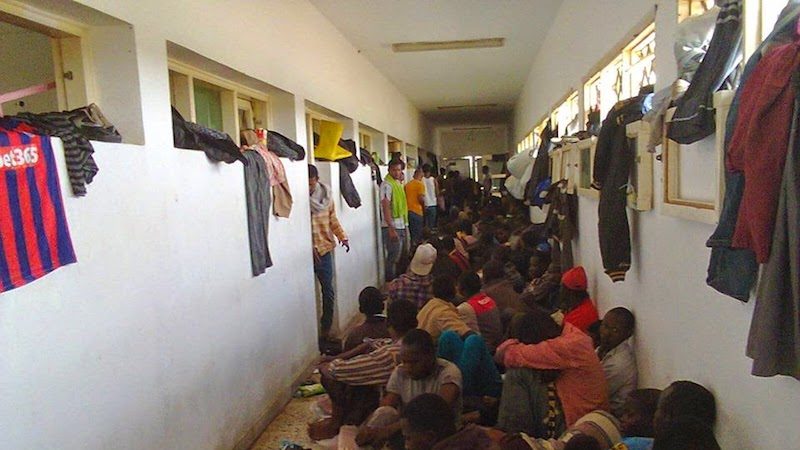The image of a dead migrant woman and her child floating off the coast of Libya while another clung desperately to the wreckage of a raft shocked the world.
The migrants were rescued by a Spanish rescue group, Proactiva Open Arms, who accused the Libyan coastguard of abandoning them in the Mediterranean sea on Monday. Concerns on the humanitarian situation in Libya were also the focus of a report presented to UN Human Rights Council.
The Libyan coastguard and the Italian government denied these allegations. The Italian government has said it would stop the influx of migrants across the Mediterranean and has given aid to Libyan authorities to increase efforts to stem the flow.
In a tweet, Interior Minister Matteo Salvini: “Two Spanish NGO ships returned to the Mediterranean waiting to be loaded with human beings. They should save themselves time and money, they will only see Italian ports on postcards”.
The Maltese government earlier this month impounded two migrant rescue vessels and refused to allow a plane run by a German NGO from taking part in a rescue mission.
Libya has become a major transit point for people fleeing Africa or the Middle East and a United Nations High Commissioner for Refugees (UNHCR) report pointed out that “more and more Libyans are joining mixed migratory movements to Europe”. The report was presented to UN Human Rights Council last month.
In 2017, 1,243 Libyan nationals arrived in Italy by sea and that the number of Libyans reaching Italian shores had increased by 39 per cent compared to 2016.
That same year, Libyans lodged 485 asylum applications in Italy, citing insecurity, generalised violence and personal threats, a report on the human rights of internally displaced persons in Libya said.
The report described the humanitarian situation and the lack of support for the protection of their human rights and to achieve durable solutions as being of “great concern”. An estimated two to three per cent of the total Libyan population is currently internally displaced.
Strengthening protection and ensuring safety, security and humanitarian assistance must be a high priority to save lives and improve living conditions, according to UN Special Rapporteur Cecilia
Jimenez-Damary.
The root causes, including human rights violations, must be given priority, the report states. “Internal displacement has become a permanent feature of life for many in Libya and the lack of solutions or protection are leading to an increasing number leaving the country, many for Europe”.
Many Libyans have legitimate protection concerns and it was important they had access to asylum procedures. A stronger commitment was required from the Libyan government to address the particular challenges, including those who continue to be persecuted and discriminated against after fleeing, the report states.
The mere physical return is not equivalent to solving the issue of internal displacement in Libya and it was “essential to put internally displaced persons at the heart of the decisions affecting them, with their full and effective participation”.
In its recommendations, the report called for a national road map that clarifies roles and responsibilities while improving coordination among stakeholders. The Minister of State for Persons’ Affairs should be a focal point with a clear mandate, budget and secretariat and needed to ensure a systematic approach to addressing internal displacement.
A review of Libyan legislation, together with international experts, would help remove legal obstacles for internally displaced persons and identify gaps and amendments.
All groups of internally displaced persons should be publicly acknowledged and measures to protect and assist all those were needed. The Libyan government should support joint efforts with humanitarian and development partners to implement a “displacement profiling exercise” to build a comprehensive picture of the situation and identify trends.
It should also actively support the UN and other humanitarian and NGOs to be given access and reduce red tape when issuing visas to these organisations.
Return measures had to be done in a safe and dignified way and all the required information had to be provided.
In her recommendations to the UN, the rapporteur called for the issue of internally displaced persons in Libya to be made a high priority on the international agenda. The capacity of the Libyan government to meet their needs “is limited and UN agencies and civil society are constrained by a lack of international support and resources”.
The report puts Salvini’s populist grandstanding into focus, and as bodies pile up in the graveyard that is the Mediterranean Sea, Prime Minister Joseph Muscat’s move to stall NGOs from saving lives should be questioned.












